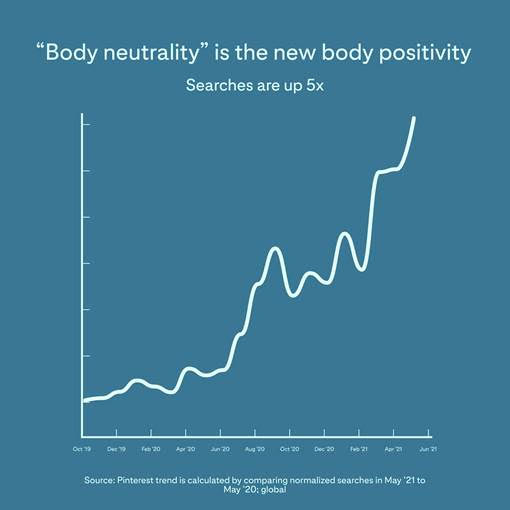Starting today, Pinterest will prohibit all advertisers from sharing ads that promote weight loss. This includes any language and imagery that encourages weight loss, promotes weight loss products, idealizes certain body types, or references the BMI (which is often a poor indicator of overall health). This makes Pinterest the first major social media platform to take this stance.
Social media has played a role in promoting harmful beauty standards for as long as it’s existed. But even as “body positivity” has eclipsed the “thinspo” that proliferated on Tumblr a decade ago, sometimes, the trend can be a thin veil for weight stigma. Take a company like Weight Watchers, for example, which re-branded to WW (“Wellness That Works”) in 2018, yet continues to boast its members’ weight loss stories on its website. Even when online content about weight loss is well-meaning, it often contributes to a rise in disordered eating behavior rather than healthy habits, which is why the wellness industry can be so harmful.
Pinterest developed its updated ad policy with guidance from the National Eating Disorders Association (NEDA), which has also worked with platforms like Tumblr and Facebook in the past. Since March 2020, the onset of the pandemic in the US, NEDA has experienced an increase in activity on its helplines for people struggling with eating disorders. As Vox’s Rebecca Jennings pointed out, people started spending even more time online during lockdown, which means more exposure to content that makes us feel bad about ourselves. Even the TikTok-famous sixteen-year-old actress Sissy Sheridan tweeted, “i liked my body before i downloaded tik tok.”

Image Credits: Pinterest
from TechCrunch https://ift.tt/3ybDOHJ








0 comments:
Post a Comment